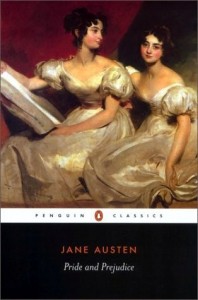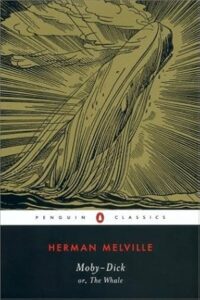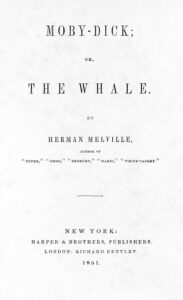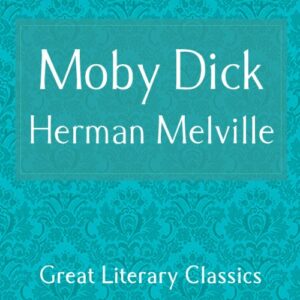Celebrating Openings: #1 — “Moby Dick”
“It is a truth universally acknowledged…”
Nope, not starting with that one, although it is indubitably one of the great opening lines. And it is fairly universally acknowledged that a tale’s opening must reach out and grab the reader, hauling them headfirst—and with enthusiasm, i.e. no kicking and screaming—into the story.

This post series is going to look at some of my personal favourites, starting with the classics. But not Jane Austen’s classic, or ‘not this day’, anyway. 😀
Today, I’m taking a look at Herman Melville’s Moby Dick, which both passes and fails the opening test.

Moby Dick was a set text for a Lit course, many long years ago, and although (in those youthful and giddy times) I regarded its size with considerable misgiving* I dutifully set out to read—
—and very nearly foundered on the opening section, which is titled “Etymology.” Not because of the opening line, which pricked my interest:
“The pale Usher — threadbare in coat, heart, body and brain; I see him now.”
Tell me more, I thought. Except the more was a list defining the word ‘whale’, followed by “Extracts”, which comprises a compilation of whale quotes from literature. Sixteen pages of quotes, no less. Not exactly riveting stuff and my youthful self was ready to throw in the towel at that point.

Original title page
Until I turned the page to Chapter 1 and these fateful words greeted me:
“Call me Ishmael.”
Talk about reaching out, grabbing the reader by main force and hauling them into the book. I was also fortunate enough to immediately get the allusion to the original (Biblical) Ishmael, who was an outcast — and wanted to learn more about this outcast.
The main reason the opening compels engagement though (imho) is because it’s so personal: the narrator is speaking to the reader and inviting us into the story. Masterful! (Again, imho.)
Fortunately, from that point on, the story did not disappoint. So when it comes to great opening lines, while I nod to the Usher, otherwise it’s straight to Chapter 1 and “Call me Ishmael.”

Audio edition
As for that asterisk* — by reading, I discovered that ca. one third of the edition’s 1015 pages was not the actual story, but comprised introductory matter (86 pages), a subsequent “Commentary” of 300 pages, and a map (2 pages.) The dangers of becoming a classic work!







